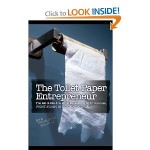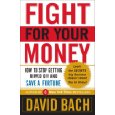 The Millionaire Next Door by Thomas J. Stanley and William D. Danko
The Millionaire Next Door by Thomas J. Stanley and William D. Danko
In the book, The Millionaire Next Door , the authors talk about the seven common denominators among those who successfully build wealth:
, the authors talk about the seven common denominators among those who successfully build wealth:
1. They live well below their means.
2. They allocate their time, energy, and money efficiently, in ways conducive to building wealth.
3. They believe that financial independence is more important than displaying high social status.
4. Their parents did not provide economic outpatient care.
5. Their adult children are economically self-sufficient.
6. They are proficient in targeting market opportunities.
7. They chose the right occupation.
I found this book really interesting as it gave me a glimpse inside the lives of millionaires. They don’t live glamorous lives like one would expect. Instead, they invest their money carefully, are most often either self-employed or owners of one or more businesses, and they spend about 8 to 10 hours a month on studying their investments. They are unlikely to buy expensive watches, cars, etc. and they know how to live well below their means. In fact, in many cases, the children of millionaires are unaware of their parent’s wealth until they are adults.
The authors discovered that most millionaires are married couples that are getting close to retirement age or have just retired, and that both the husband and wife are frugal. Surprisingly, most of the millionaires they studied became wealthy in one generation; very few inherited any of their wealth. As well, most of the millionaires they studied were well aware of their monthly expenses and kept within a budget.
Throughout the book, comparisons are made between high wage earners and millionaires. It explains how those who don’t know how to live below their means will never be millionaires no matter how much money they earn, and how those with modest incomes can still become millionaires if they are diligent at saving and investing.
This book is full of interesting statistics, charts, and research findings about millionaires and their spending habits. I would recommend it to anyone who is interested in acquiring wealth or is just plain curious about what millionaires do with all of their money.
 Books can be really expensive, but the knowledge we can gain from them is sometimes priceless. That being said, I am all about being a good steward with my money, so below is the process I follow when I want to read a certain book.
Books can be really expensive, but the knowledge we can gain from them is sometimes priceless. That being said, I am all about being a good steward with my money, so below is the process I follow when I want to read a certain book.

 David Bach’s book
David Bach’s book  The Soul of Money: Transforming Your Relationship With Money And Life by Lynne Twist
The Soul of Money: Transforming Your Relationship With Money And Life by Lynne Twist The Millionaire Next Door by Thomas J. Stanley and William D. Danko
The Millionaire Next Door by Thomas J. Stanley and William D. Danko